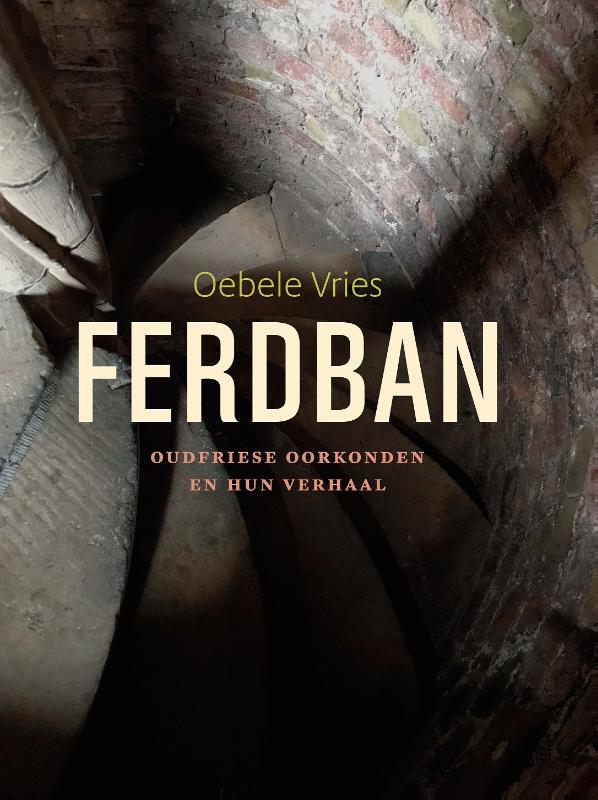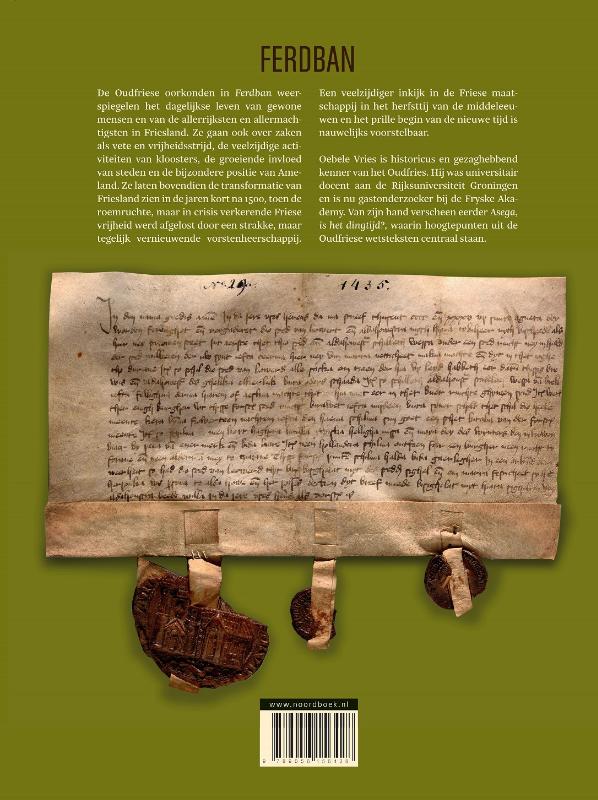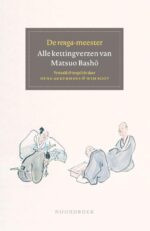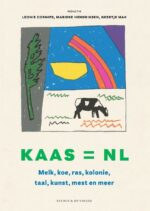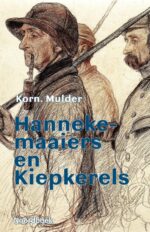Ferdban
€ 49,90
De Oudfriese oorkonden in Ferdban weerspiegelen het dagelijkse leven van gewone mensen en van de allerrijksten en allermachtigsten in Friesland. Ze gaan ook over zaken als vete en vrijheidsstrijd, de veelzijdige activiteiten van kloosters, de groeiende invloed van steden en de bijzondere positie van Ameland. Ze laten bovendien de transformatie van Friesland zien in de jaren kort na 1500, toen de roemruchte, maar in crisis verkerende Friese vrijheid werd afgelost door een strakke, maar tegelijk vernieuwende vorstenheerschappij. Een veelzijdiger inkijk in de Friese maatschappij in het herfsttij van de middeleeuwen en het prille begin van de nieuwe tijd is nauwelijks voorstelbaar.
Oebele Vries is historicus en gezaghebbend kenner van het Oudfries. Hij was universitair docent aan de Rijksuniversiteit Groningen en is nu gastonderzoeker bij de Fryske Akademy. Van zijn hand verscheen eerder Asega, is het dingtijd?, waarin hoogtepunten uit de Oudfriese wetsteksten centraal staan.
Gerelateerde boeken
-
Georg Wilhelm Steller
€ 24,90Veel vogelaars kennen Steller van de vogelsoorten die naar hem genoemd zijn, waaronder Stellers eider en Stellers zeearend.
Maar wie was hij? Georg Wilhelm Steller was een Duitse geleerde in Russische dienst die in 1741 als eerste bioloog landde in Alaska, dat toen nog Russisch was. Op de thuisreis sloeg het noodlot toe. Verzwakt door scheurbuik leed de expeditie schipbreuk op een onbewoond eiland. Tijdens dit onvrijwillige verblijf beschreef Steller onder andere de reusachtige zeekoeien, waarmee hij wereldfaam verwierf. Helaas werden deze spoedig uitgeroeid. Uiteindelijk wisten de overlevende zeelieden Kamtsjatka te bereiken. Voor hij terug kon keren naar Sint-Petersburg stierf Steller, belasterd door tegenstanders en gemangeld door de Russische bureaucratie, in de eindeloze verten van Siberië. Geleerden als Pallas en Linnaeus maakten zijn ontdekkingen wereldkundig en streken de eer op voor zijn pionierswerk.
Deze uitgave bevat Stellers dagboek van de ontdekkingsreis naar Alaska, fragmenten uit zijn werk over zeezoogdieren, en passages uit zijn Beschrijving van Kamtsjatka.Mark Nieuwenhuis (1968) is docent Latijn en vertaler van Latijnse literatuur. Vogels kijken doet hij al zijn hele leven. Nu zijn boek over Steller is voltooid, gaat hij Stellers eider eindelijk eens opzoeken in zijn overwinteringsgebied.
-
-
Hannekemaaiers en Kiepkerels
€ 16,90Vanaf de Gouden Eeuw tot aan de Eerste Wereldoorlog kwamen elk voorjaar duizenden seizoenarbeiders vanuit Duitsland naar Nederland om de boeren te helpen bij de hooioogst. Ze werden hannekemaaiers, mieren of poepen genoemd. Individueel of in groepjes boden ze zich aan. Boeren in het noorden hadden gemiddeld twee tot vier hannekemaaiers aan het werk. Sommigen kwamen jaar na jaar terug bij dezelfde boer. Anderen handelden in linnenwaren. Deze ‘lapkepoepen’ vormden de basis van talloze winkels en bedrijven in kleding en textiel die nu nog steeds in Nederland aanwezig zijn.
In Hannekemaaiers en Kiepkerels beschreef Kornelis Mulder (1916-1978) de geschiedenis, de herkomst en de invloed van deze seizoenarbeiders.
